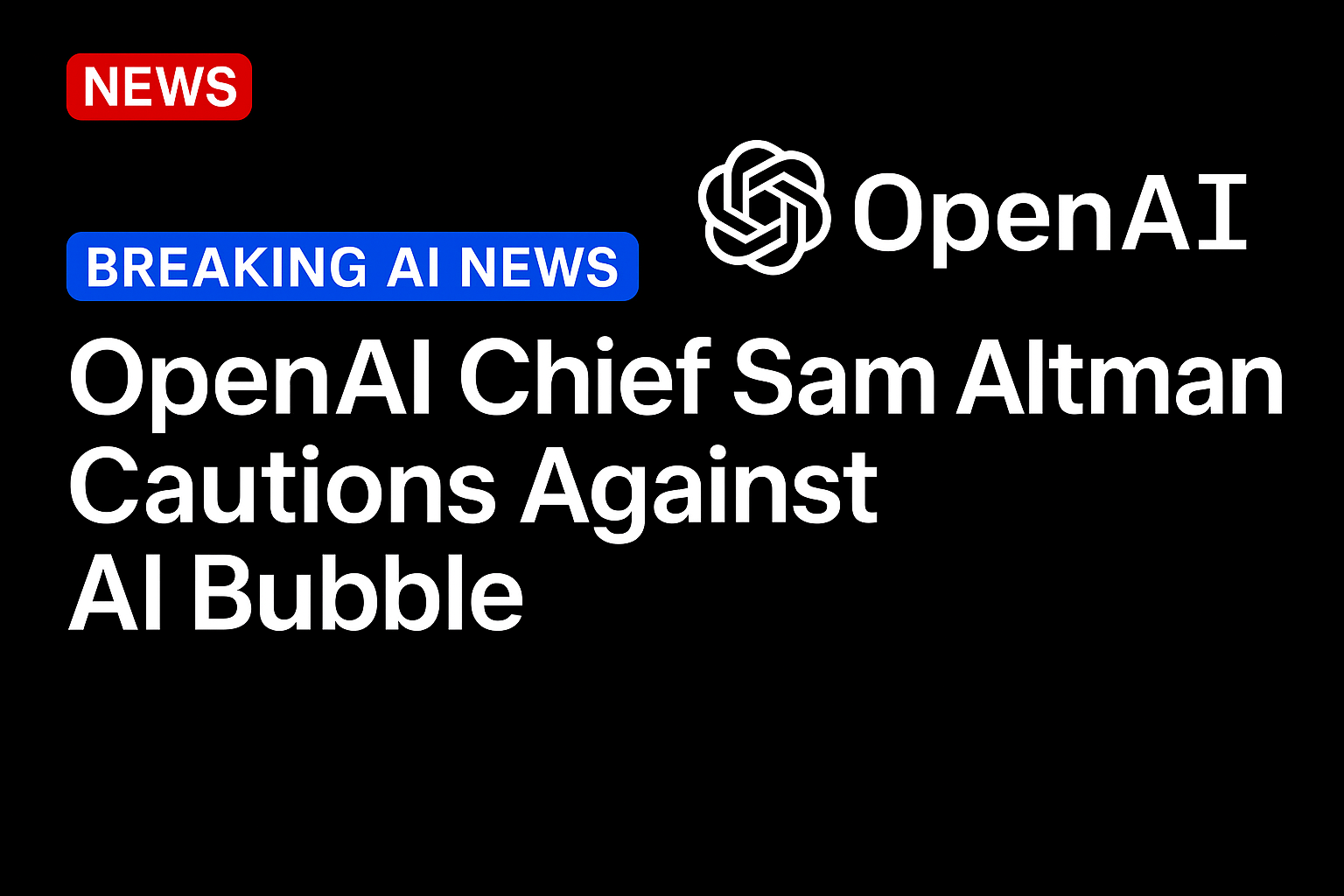OpenAI’s chief executive said the artificial intelligence (AI) market is in a bubble.
“When bubbles happen, smart people get overexcited about a kernel of truth,” Sam Altman said in a Friday (Aug. 15) interview with The Verge.
“If you look at most of the bubbles in history, like the tech bubble, there was a real thing. Tech was really important. The internet was a really big deal. People got overexcited. Are we in a phase where investors as a whole are overexcited about AI? My opinion is yes. Is AI the most important thing to happen in a very long time? My opinion is also yes.”
Altman’s comments to the Verge were flagged Monday (Aug. 18) in a report by CNBC, which notes that the CEO is not alone in raising concerns about the speed of AI growth, joining the likes of Alibaba Co-founder Joe Tsai, Bridgewater Associates’ Ray Dalio and Apollo Global Management Chief Economist Torsten Slok.
Slok had contended that today’s AI bubble is actually bigger than the dotcom bubble, with the 10 leading companies in the S&P 500 more overvalued than they were during the 1990s, the CNBC report added.
Ray Wang, CEO of Silicon Valley-based Constellation Research, told the network that he believed Altman’s comments carry some weight, but that the risks depend on the company.
“From the perspective of broader investment in AI and semiconductors … I don’t see it as a bubble. The fundamentals across the supply chain remain strong, and the long-term trajectory of the AI trend supports continued investment,” he said.
Meanwhile, AI companies continue to rake in significant amounts of funding. Last week saw OpenAI rival Cohere raise $500 million at a $6.8 billion valuation. Also last week, Cognition reportedly raised $500 million to support its AI software code generation products, with the funding round doubling the company’s valuation to $9.8 billion.
In other AI news, PYMNTS wrote recently about predictions about the technology’s potential to one day cure cancer. Many experts expressed various degrees of skepticism about such claims.
“The idea that AI will eliminate cancer is incredibly optimistic, but honestly, it is not as straightforward as it sounds,” said Kiara DeWitt, CEO of Injectco and a nurse. “Although AI can drastically improve diagnostics … a full cure is another matter entirely.”
Although AI-driven image recognition software has the potential to increase five-year survival rates by 30%, DeWitt added, “curing” every case is “still beyond AI’s reach alone.”
“Most cancer ‘cures’ are heavily individualized, dependent on patient genetics, immune responses and countless environmental variables no AI model fully comprehends today,” she said.
Source: https://www.pymnts.com/

